Hygiene Interaction
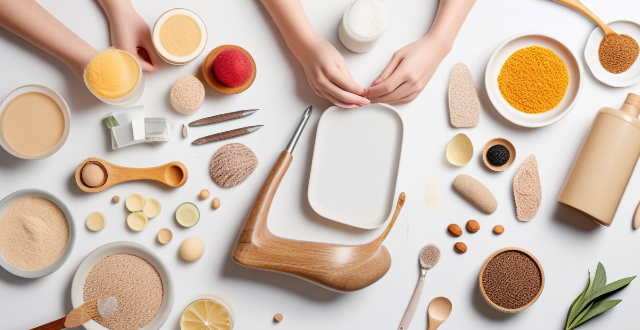
How does one's personal hygiene affect their social interactions ?
Personal hygiene is crucial for positive social interactions, boosting confidence, and maintaining good health. Good hygiene habits include regular bathing, teeth brushing, wearing clean clothes, hand washing, and taking care of skin and hair. Poor hygiene can lead to social isolation, misunderstandings, and health risks. Following simple tips can ensure that personal hygiene positively impacts social interactions.

Can poor personal hygiene lead to skin problems ?
Poor personal hygiene can lead to a variety of skin problems, including bacterial and fungal infections, irritation and inflammation, and other conditions. To prevent these issues, it's important to practice good hygiene, such as regular showering, wearing clean clothes, hand washing, moisturizing, and sun protection.

How can I teach my children about the importance of personal hygiene ?
Teaching personal hygiene to children is crucial for their development. Start with basic concepts and gradually introduce more complex ones as they grow. Emphasize hand washing, covering mouth while coughing, daily bathing, and teeth brushing. Lead by example, make hygiene fun, educate consistently, and use visual aids. Handle resistance with negotiation, incentives, and explaining consequences. Maintaining hygiene habits requires ongoing education on puberty, menstrual hygiene, etc.

Why is personal hygiene important for those who handle or prepare food ?
Personal hygiene is critical for food handlers due to its impact on health, safety, and quality assurance. Cross-contamination and allergen transfer can lead to illnesses, while cleanliness affects food presentation and flavor. Handwashing, proper grooming, and workstation cleaning are essential practices to maintain hygiene.

What role does nutrition play in maintaining personal hygiene ?
The article emphasizes the importance of nutrition in maintaining personal hygiene. It suggests consuming nutrient-rich foods, developing healthy dietary habits, and supporting the immune system through nutrition to improve overall health and hygiene.

In what ways does poor personal hygiene impact mental health ?
Poor personal hygiene can negatively affect mental health by causing decreased self-esteem, social isolation, and exacerbating symptoms of mental health disorders. It is important to maintain good hygiene habits for overall well-being.

What is the significance of regular bathing in personal hygiene ?
Bathing regularly is essential for maintaining good personal hygiene, offering benefits such as dirt and sweat removal, prevention of body odor, promotion of blood circulation, stress and anxiety reduction, and maintenance of good grooming habits.

What is the significance of personal hygiene in food handling ?
Personal hygiene is crucial for food safety, public health protection, and maintaining quality in the food industry. It prevents cross-contamination, reduces disease transmission, and enhances food quality. Adherence to personal hygiene standards impacts regulatory compliance, consumer trust, and economic implications within the food industry.

Is it safe to use scented feminine hygiene products ?
This article discusses the potential risks and benefits associated with using scented feminine hygiene products. Possible risks include allergic reactions, hormonal imbalances, and environmental impact, while benefits include personal comfort, confidence, variety, and enjoyment. It is important for individuals to consider their own needs and preferences when choosing whether or not to use scented feminine hygiene products and to consult with a healthcare professional regarding any concerns or questions about specific products.

Is there a difference between personal hygiene and cleanliness ?
Personal Hygiene and Cleanliness are often used interchangeably, but they have distinct meanings. Personal hygiene focuses on the individual's physical well-being, while cleanliness focuses on the environment's tidiness and orderliness. Both are essential for maintaining good health and preventing the spread of infections.

Can using certain feminine hygiene products cause infections or irritation ?
"Can Using Certain Feminine Hygiene Products Cause Infections or Irritation?": This article explores the potential risks associated with using various feminine hygiene products, including infections and irritation. It provides tips on how to prevent these risks by choosing appropriate products, practicing good hygiene, and consulting a healthcare provider if necessary. The article emphasizes the importance of using these products correctly and mindfully to maintain personal hygiene without compromising one's health.
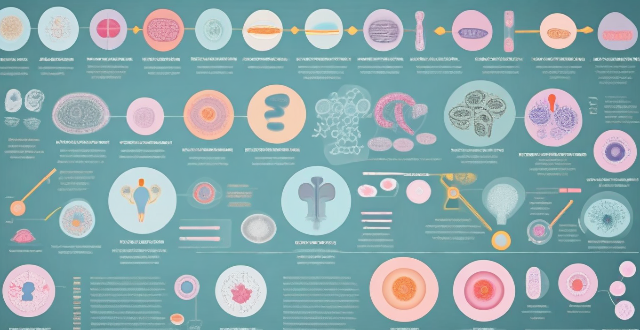
What are the risks associated with poor personal hygiene on health ?
This article discusses the risks associated with poor personal hygiene on health. It highlights various infections and illnesses that can occur due to poor hygiene practices, including skin infections, respiratory infections, gastrointestinal infections, urinary tract infections, sexually transmitted infections, and mental health issues. The article emphasizes the importance of maintaining good personal hygiene habits to prevent these health risks and promote overall well-being.

How often should I wash my hands to maintain good hygiene ?
Washing hands is an essential part of maintaining good hygiene. It helps prevent the spread of germs and diseases, especially during these times of COVID-19. Here are some tips on how often you should wash your hands: before eating or preparing food, after using the bathroom, after coughing/sneezing/blowing your nose, before touching someone else's face, and after handling dirty objects. It's important to wash your hands frequently throughout the day to maintain good hygiene and prevent the spread of germs and diseases.

What steps should be taken to maintain good hygiene during travel ?
The text provides a comprehensive guide on maintaining good hygiene during travel. It emphasizes the importance of packing essential hygiene items, keeping hands clean, practicing safe eating habits, staying clean and fresh, being mindful of surroundings, keeping living spaces clean, and following local customs. The article underscores that maintaining good hygiene is crucial to staying healthy and enjoying a pleasant travel experience.

What are the key principles of food hygiene and safety ?
Food hygiene and safety are crucial in preventing foodborne illnesses and ensuring the well-being of consumers. Key principles include personal hygiene such as washing hands thoroughly, covering cuts and sores, avoiding contaminating surfaces, and wearing appropriate clothing; food handling including keeping food at safe temperatures, cooking food thoroughly, using separate utensils, and avoiding reusing cooking oil; sanitation such as cleaning equipment regularly, sanitizing surfaces, and controlling pests; and storage such as storing food properly, refrigerating leftovers promptly, and labeling and dating products. By following these principles, you can help protect yourself and others from foodborne illnesses and enjoy safe, healthy meals.
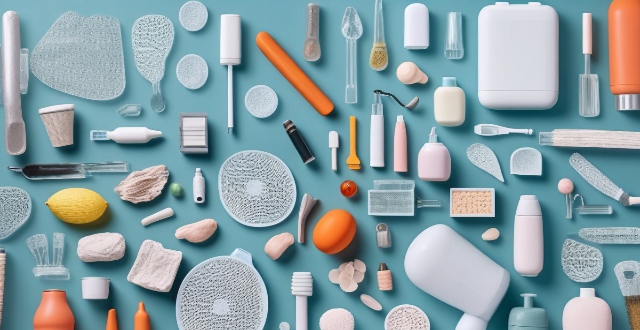
Are there any specific products or tools recommended for optimal oral hygiene ?
Optimal oral hygiene is crucial for overall health. Recommended products and tools include electric or manual toothbrushes, fluoride or whitening toothpaste, dental floss, interdental cleaners, antibacterial or fluoride mouthwash, tongue scrapers, and water flossers. Tips for optimal oral hygiene include regular brushing and flossing, regular dental check-ups, a healthy diet, quitting smoking, and drinking water after meals.

What is the importance of dental hygiene in pets and how can it be maintained ?
The Importance of Dental Hygiene in Pets Dental hygiene is a crucial aspect of your pet's overall health and well-being. Poor dental hygiene can lead to various health issues, including bad breath, gum disease, tooth loss, and even more severe problems like heart, liver, or kidney disease. Therefore, maintaining good dental hygiene for your pets is essential. Maintaining dental hygiene in pets involves several steps that should be incorporated into their daily routine. These steps include regular brushing, dental chews and toys, regular checkups with a veterinarian, specialized dental foods, and homemade remedies. Incorporating these steps into your pet's daily routine can help keep their teeth healthy and prevent potential health issues down the line.

How do remote education platforms facilitate collaboration among students ?
Remote education platforms offer various features to facilitate collaboration among students, including real-time interaction through instant messaging and video conferencing, shared workspaces with collaborative documents and visual aids, group project management with task assignment and tracking, discussion forums for asynchronous discussions and idea exchange, multimedia sharing and interactive learning tools, and feedback and assessment mechanisms for peer review and group performance metrics. These tools enhance the educational experience by promoting interaction and cooperation among peers, regardless of geographical boundaries.

What are the best practices for personal hygiene ?
Personal hygiene is essential for maintaining good health and preventing the spread of illnesses. Best practices include washing hands regularly, showering daily, brushing teeth twice a day, wearing clean clothes, trimming nails, covering mouth when coughing or sneezing, avoiding touching face, keeping living space clean, getting enough sleep, and staying hydrated.

How do sports events promote social interaction and community building ?
Sports events play a significant role in promoting social interaction and community building. They bring people together, foster a sense of belonging, and create opportunities for individuals to connect with one another. This is achieved through encouraging participation, building community spirit, providing entertainment and recreation, facilitating networking opportunities, and enhancing diversity and inclusion. By bringing people together around a shared passion for sports, these events create lasting connections and positive experiences that extend far beyond the playing field.

What is the importance of dental hygiene in overall health ?
The Importance of Dental Hygiene in Overall Health Dental hygiene is an essential aspect of maintaining good overall health. Poor dental hygiene can lead to a range of health problems, including gum disease, tooth decay, and bad breath. In this article, we will explore the importance of dental hygiene in overall health and provide tips for maintaining good oral health. How Dental Hygiene Affects Overall Health Gum Disease: Gum disease, also known as periodontal disease, is caused by the buildup of plaque on the teeth and gums. If left untreated, it can lead to inflammation, infection, and even tooth loss. Gum disease has been linked to several systemic health problems, including heart disease, diabetes, and respiratory disease. Tooth Decay: Tooth decay occurs when bacteria in the mouth produce acids that eat away at the enamel on the teeth. This can lead to cavities, pain, and even tooth loss if left untreated. Tooth decay can also affect overall health by causing digestive problems and nutritional deficiencies. Bad Breath: Bad breath, also known as halitosis, is often caused by poor dental hygiene. It can be embarrassing and may even affect social interactions. In some cases, chronic bad breath can be a sign of underlying health problems, such as gum disease or respiratory infections. Tips for Maintaining Good Oral Health Brush Your Teeth Twice a Day: Brushing your teeth twice a day with fluoride toothpaste helps remove plaque and bacteria from your teeth and gums. Floss Daily: Flossing daily helps remove plaque and bacteria from between your teeth where your toothbrush cannot reach. Visit Your Dentist Regularly: Regular dental checkups and cleanings can help identify and treat potential problems early on before they become more serious. Eat a Healthy Diet: Eating a healthy diet low in sugar and high in nutrients can help keep your teeth and gums healthy. Drink Water: Drinking water throughout the day helps rinse away food particles and bacteria in your mouth. Avoid Tobacco Products: Smoking or using other tobacco products can increase your risk of developing gum disease and other oral health problems. Limit Alcohol Consumption: Drinking too much alcohol can dry out your mouth and increase your risk of developing gum disease and other oral health problems.

How can I increase viewer interaction in my online broadcasts ?
Increasing viewer interaction is crucial for online broadcasters to build a loyal fan base and improve engagement. Strategies include engaging with the audience through live chat, polls, and Q&A sessions; incorporating interactive games, collaborations, and guest appearances; using visually appealing graphics and custom overlays; building a community through fan groups and contests; and encouraging viewer participation by showcasing their content.

How important is viewer interaction to the success of a live stream ?
The importance of viewer interaction in live stream success cannot be overstated. It not only enhances the viewer's experience but also helps build a strong community around the content. Engaging content, building community, and measuring success are all crucial aspects of viewer interaction that can help ensure the success of a live stream. By providing engaging content, interacting with viewers, collaborating with other creators, and tracking key metrics, you can create a loyal fan base that will support your live streams and help promote your content to others.

How can I establish a daily personal hygiene routine ?
Establishing a daily personal hygiene routine is essential for maintaining good health and well-being. The routine includes morning, midday, and evening practices such as brushing teeth, showering, washing hands, applying deodorant, eating a healthy breakfast, drinking water, taking breaks, tidying up workspace, removing makeup, changing into clean pajamas, and getting enough sleep. Following these steps can help keep you clean, healthy, and confident throughout the day.

What are the challenges faced by remote education platforms ?
The challenges faced by remote education platforms include technical issues such as slow internet connections, inadequate hardware, and software compatibility. Educational quality can be affected due to limited interaction, the need for curriculum adaptation, and difficulties in assessment. Accessibility is a concern due to the digital divide, language barriers, and disabilities. Teacher training and support may be lacking, leading to suboptimal learning experiences for students. Student motivation and mental health can also be impacted by reduced face-to-face interaction and prolonged periods of isolation. These challenges underscore the need for continuous improvement and innovation in remote education to ensure equal opportunities for all students.

Are there any specific feminine hygiene tips for athletes or active women ?
本文为运动员和活跃女性提供了关于女性卫生的实用建议,包括穿着适当的内衣、使用卫生用品、保持个人卫生、保持水分、穿着宽松衣物以及监测月经周期。这些建议有助于她们在运动时保持舒适和自信,同时降低与女性卫生相关的感染风险。
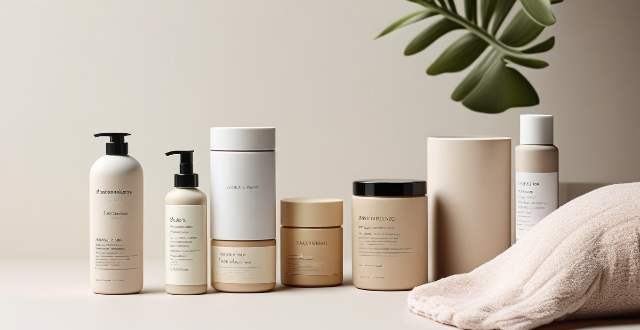
What are the best feminine hygiene products for sensitive skin ?
这篇文章为女性敏感肌肤提供了一些最佳的卫生产品选择,包括有机棉垫、无香精的卫生棉条、pH平衡的洗涤剂、天然油和透气内衣。这些建议旨在帮助女性在经期保持舒适和自信。
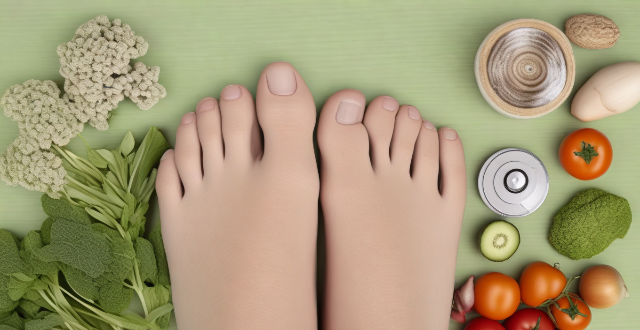
What are the consequences of neglecting foot hygiene ?
The text discusses the various consequences of neglecting foot hygiene, including physical health risks such as athlete's foot, toenail fungus, ingrown toenails, blisters and calluses, plantar warts, smelly feet (bromodosis), corns, bunions, gout, cellulitis, diabetic foot ulcers, deep vein thrombosis (DVT), and peripheral neuropathy. It also addresses mental health impacts like embarrassment and self-consciousness, anxiety, and stress. The text provides detailed descriptions and prevention tips for each issue, emphasizing the importance of good foot care habits to maintain overall foot health.

What are the best disinfection methods for public spaces during a pandemic ?
Best disinfection methods for public spaces during a pandemic include regular cleaning and disinfection, use of UV-C light disinfection, hand hygiene facilities, and air filtration systems. Regular cleaning and disinfection of high-touch surfaces helps to remove any potential contaminants and reduce the risk of transmission. UV-C light has been shown to effectively kill viruses and bacteria by damaging their DNA or RNA structure. Providing adequate hand hygiene facilities encourages individuals to maintain good hand hygiene practices. Installing air filtration systems with HEPA filters can help to reduce the concentration of airborne particles in public spaces.